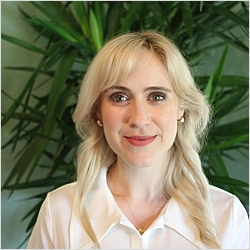What's My Approach to Therapy?
Feeling overwhelmed, stressed, or just plain stuck? You're not alone.
You deserve a life filled with stability, purpose, and meaningful connections. Together, we can work to unravel the complexities of your thoughts and emotions, and discover the strength and resilience within you while adding skills and identifying solutions.
I offer individual and couples therapy to help you navigate the challenges of ADHD, anxiety, relationship issues, and more. Whether you're struggling with overwhelm, focus, motivation, or simply seeking a deeper understanding of yourself and deeper connections with others, I'm here to guide you.
I also provide comprehensive psychological assessments to help you gain insights into your strengths and challenges. These assessments can be helpful for a variety of reasons, including:
ADHD testing
Learning disorder assessments
Neuropsychological assessments
Mood or personality disorders
Career coaching
Pre-adoption evaluations
My approach is warm, empathetic, and grounded in evidence-based practices. Through a collaborative process, we'll explore your unique experiences and work together to develop practical strategies for overcoming obstacles and achieving your goals. You'll learn valuable tools to manage stress, enhance your relationships, and cultivate a sense of well-being.
Imagine a future where you feel empowered, confident, and in control of your life. Let's make that future a reality.
My Practice & Services
As a certified sleep therapist, I also offer specialized sleep therapy - specifically CBTI: Cognitive Behavioral Therapy for Insomnia. We can integrate this into your therapy for other disorders, such as anxiety and depression, or conduct this as short-term therapy solely focused on sleep disorders.
Important Factors for Choosing a Therapist
1. Countless empirical research studies have repeatedly found that our rapport: our therapeutic bond, is they most predictive element of therapeutic success. One of my greatest therapeutic strengths is fostering fast, strong, and lasting rapport with my patients. I also ask for feedback! We'll talk about what workeddidn't work so well in your previous therapy experiences (if you have had any) and in our work together as we progress. When you consult with your potential therapist, ask yourself if this is a person you would want to sit across from each week and trust with vulnerable, heavy information. If you feel that they are someone you would feel comfortable with, then try it out and remember, it is perfectly reasonable to change if you do not feel that they are the right fit for your unique needs.
2. Secondly are areas of expertise. These are key! Make sure to ask your potential therapist about their areas of expertise, their experience treating your symptoms and clients like you, and how they would typically approach a presenting problem like yours. If you don't feel that they are certified and clearly well experienced in the areas you need them to be, then they are unlikely to be the right fit. The "sweet spot" is the combination of factor one: great rapport, and this second factors: competence.
3. Thirdly, there are the practical factors like scheduling and frequency. I just opened another day for therapy and assessment, so I'm proud to offer weekly appointment availability beginning as soon as you feel ready to start. That way, you won't start your therapeutic journey and experience a week or two of progress before being transitioned to every-other-week or once a month due to lack of compatible scheduling. I also offer after hours or weekend appointments at an increased rate, because I know that sometimes things come up and those are the only times you can make work! I have a 48-hour cancellation policy, but if you realize within that window that you can't make your appointment, I always try to offer availability to reschedule your appointment within the current week, rather than for you to have to cancel altogether.
I also offer flexible scheduling. To be neurodivergent adaptable and anxiety-minded, I offer you two routes. Do you prefer a standing appointment day and time that you can rely upon each week? Alternately, do you have a hectic schedule (as many of my patients do), and prefer to book our next session at the end of our time together each week? I aim to accommodate either preference, including schedule changes over time.
The Duration and Frequency of Therapy
I'm a big believer in there not being a "one size fits all" approach to therapy, so of course the technical answer to "How long is the right amount of time to devote to therapy?" is "it depends." However, I'll tell you my approach - I believe therapy should be a fantastic, highly beneficial tool in your arsenal. It shouldn't be something you come to depend upon for years on end, nor something that becomes a financial burden rather than a major asset. My goal is, as strange as it sounds, to put myself out of a job. When you feel that you are thriving and no longer need therapy, we'll celebrate your progress! Then we'll collaborate to decrease the frequency with which you attend therapy and, then, find the time that feels right for you to terminate altogether. I end every therapeutic relationship with the words "My door is always open." Many of my patients return years later for what we refer to as "tune ups." Once we have an established therapeutic relationship, you can come back anytime: during life transitions, when making big decisions, and so on. My patients appreciate my strength of remembering the details - after all, I'm in this profession because of how much I love working with people and delving into their lives with them to emerge thriving, not surviving. This way, they don't have to start all over again with someone who doesn't know their story. I accomplish this goal by beginning my work with you by collaborating to create therapeutic treatment goals. They help us track progress, so you can ensure that a few months into therapy you can see clear improvement and we can adjust how we work together accordingly.

